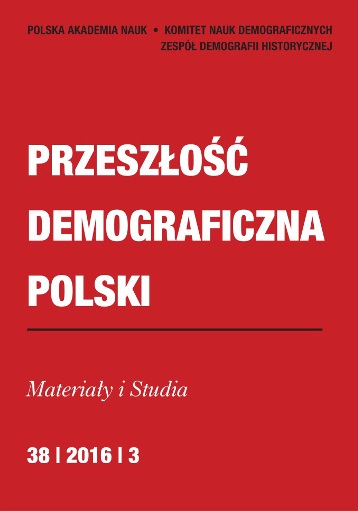Emigracja Polaków do Wielkiej Brytanii w latach 2004-2016. Implikacje dla stosunków polsko-brytyjskich
The Polish Emigration to Great Britain in the Years 2004–2016. Implications for the Polish-British Relations
Author(s): Renata PodgórzańskaSubject(s): History, Anthropology, Social Sciences, Geography, Regional studies, Human Geography, Historical Geography, Economic history, Political history, Social history
Published by: Wydawnictwo Naukowe Uniwersytetu Szczecińskiego
Keywords: international migration; Polish-British relations; foreign policy
Summary/Abstract: Regardless of the circumstances, causes, form and character migrations produce a lot of challenges inside and outside the country, and – which is very important – they create links between the sending country and the receiving one, and they are reflected in the level and character of the bilateral relations. This statement coincides with the conviction expressed by researchers that international migrations have a strong potential influence on the level and intensity of international relations. Taking into consideration this observation and the complicated character of the implications of international migrations it has been assumed – which has been based on the exploration of sources and their analysis – that the problem of the Polish emigration to Great Britain after 2004 constitutes a decisive factor in the Polish-British relations. The rightness of this statement results from the fact that together with the intensification of the Polish emigration to Great Britain and the appearance of the problems with the functioning of the Polish minority in the British social, political, economic and cultural space the Polish-British relations have flourished too. The question of emigration is a factor that determines the foreign policy verifying and intensifying it, both in Poland’s bilateral and multilateral relations. The intensity of the phenomenon of emigration has resulted not only in strengthening the Polish-British political dialogue, but also in many cases has been a factor that polarised both the states. First of all, it has been related to the anti-European sentiment of the British public opinion and the decision to leave the European Union. The question of how to protect the rights of the Poles living in Great Britain has been one of the problems discussed in the context of the international cooperation and motivated Polish institutions to act. At the same time – which is important – the problem of emigration has been only one of the many stimuli intensifying the Polish-British relations. It is a fact that from the Polish point of view Great Britain has been seen as a significant ally in the Euro-Atlantic space in an international discourse, but other areas of cooperation have also been discussed. The problem of the Polish emigration, and first of all the situation of the Poles living in Great Britain, has become very important in the context of the bilateral relations together with an increase of the anti-European sentiment in Great Britain, which finally led to the decision to leave the structures of the EU. The article contains an analysis of the problem of the Polish emigration to Great Britain and its implications for the Polish-British relations, their level, intensity and difficulties generated by that phenomenon. The problem of migration has not been analysed comprehensively, the focus has been kept only on the Polish emigration to Great Britain. And only some selected symptoms and forms of cooperation have been discussed, which – taking into consideration the increase of the Polish emigration to Great Britain – have been especially important in the context of the Polish-British relations. Passing over other questions does not mean they are not important.
Journal: Przeszłość Demograficzna Polski
- Issue Year: 38/2016
- Issue No: 3
- Page Range: 177-204
- Page Count: 28
- Language: Polish

